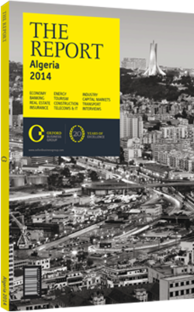Mohammed Laksaci, Governor, Bank of Algeria, on financial inclusion

Financial inclusion offers people without access to banking and financial services the opportunity for a minimum level of access to these products. As a matter of fact, it also contributes to their integration into the economy, the promotion of growth, more inclusive development, the reduction of poverty and the reinforcement of social cohesion.
Several actions undertaken in Algeria in the last few years have converged towards a progressive strengthening of financial inclusion.
For one, the right to have access to a bank account has been included in the new Banking Law of 2010. The measure, implemented by the Bank of Algeria in 2012, features free access to a large range of banking services that will benefit customers, as well as the establishment of an account agreement aimed at increasing transparency in bank-customer relations. These new measures are in line with the Financial Action Task Force’s flexibility measures to further promote financial inclusion and take into account its recommendations on fighting money laundering and the financing of terrorism.
With regards to the distribution of credit, the Bank of Algeria has requested that banks comply with due processing times for all cash credit applications introduced by customers. The application processing period must not exceed 15 days for households and 45 days for small and medium-sized enterprises (SMEs). The Bank of Algeria has also requested that large-network banks provide their customers with an information desk located in each of their branches. This is especially for the compilation of records supporting the application for investment credit on behalf of SMEs.
With respect to consumer credit protection, the Banking Law of 2010 developed the principle of eight-day retraction, which allows customers to cancel their credit without any penalty.
Lastly, the development of financial inclusion has benefitted from the implementation of modern and secure payment systems by the Bank of Algeria and retail banks. All the efforts made to promote financial inclusion have led to encouraging results – notably, an increased penetration rate as seen through the ratio of open accounts to the total population (0.8 in 2013 compared to 0.7 in 2010).
If the results are narrowed to the population that typically uses bank accounts (i.e., persons of 16 years of age and older), the number of accounts per person increases to 1.15 for 2013, compared to 1.06 in 2011. Likewise, the number of counters in banks, postal banks and Treasury branches per 100,000 people increased from 12.7 in 2010 to 13.1 in 2013.
Total deposits collected by commercial banks, postal banks and the Treasury relative to GDP has stabilised at around 59% over the past three years, while the ratio of bank deposits (excluding hydrocarbons-related deposits) to GDP (not including hydrocarbons) has also remained stable over the past three years, at roughly 62%.
In terms of microcredit distribution, three public agencies have been established to reach out to consumers and help young entrepreneurs start their own businesses, as well as to assist unemployed people reintegrate into the economy and those without regular jobs to carry out occupational activities.
The banking credits that have been granted to young entrepreneurs and to the country’s unemployed persons reached a combined AD770bn (€7.16bn) by the end of 2013, contributing to the creation of more than 862,000 jobs.
By the end of 2013, the stock of banking loans under these three programmes amounted to AD500bn (€4.65bn), or 4.31% of non-hydrocarbon GDP, up from 2.14% in late 2011.
Although important achievements have been made in terms of financial inclusion thus far, there is still a long way to go in the medium term to transform financial inclusion into a sustainable and efficient support mechanism for more inclusive development.
You have reached the limit of premium articles you can view for free.
Choose from the options below to purchase print or digital editions of our Reports. You can also purchase a website subscription giving you unlimited access to all of our Reports online for 12 months.
If you have already purchased this Report or have a website subscription, please login to continue.

